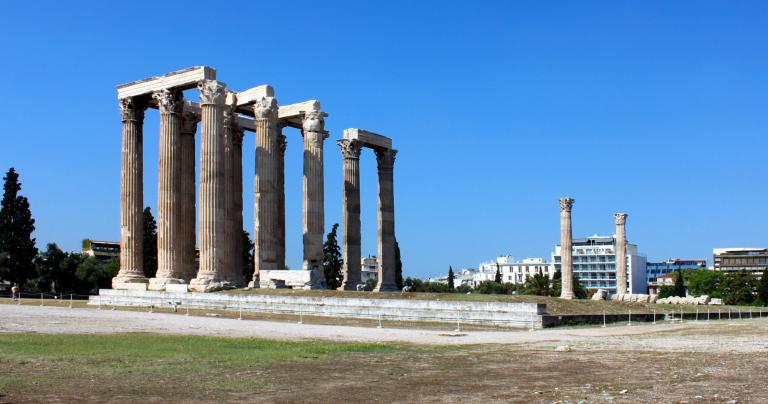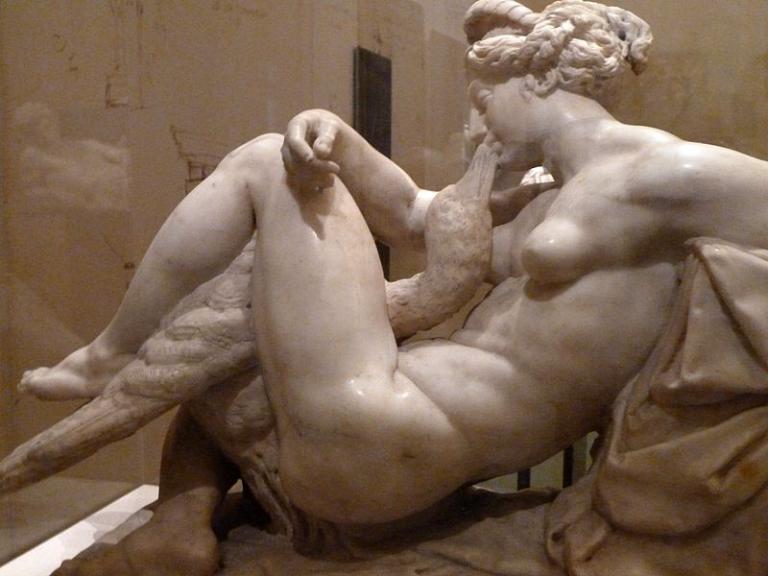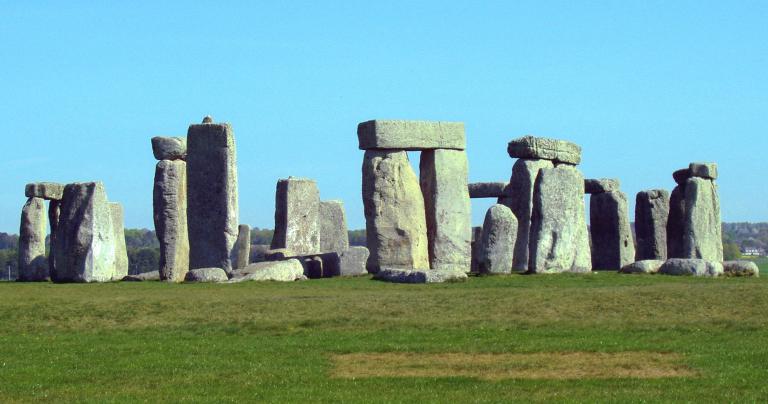In a comment to last week’s post A Conclave of Cats: Debating the Nature of the Gods, Dean Smith said
“Do you believe all the Gods have what you would consider good virtues and values only? Or like humans have a mixture of virtues and vices?
Some stories of Them would definitely display what our current society would consider horrible behavior. What is your take on this?”
This is a very difficult question, one that cannot be answered in a simple and straightforward way. It’s also a fair question, and one we need to consider.
Polytheists have been debating whether Gods behave badly at least since Socrates defended himself against charges of impiety and corrupting the youth of Athens. His ideas, as presented by Plato and further refined by the Platonists and Neoplatonists, are one way to address it. Their answer is certainly a valid one.
But I’m not a Hellenist, I’m not a Platonist, and I’m not a Neoplatonist. So I need a different answer.
What the answer is NOT
“These are just made-up stories.” Any time someone says something is “just a story” I immediately conclude they know nothing about stories, what they’re for, and how they work.
This is the problem Christian fundamentalists put themselves in. They insist that if stories aren’t literally true then they’re meaningless. This freezes them in ancient Near Eastern culture and then when it’s shown that their stories aren’t literally true, their whole religion collapses like a house of cards… not that they don’t cling to it anyway.
But the answer to the biblical literalists – or the Pagan lore fundamentalists – isn’t to dismiss the stories of the Gods as mere fiction. Stories are our greatest storehouse of knowledge and wisdom, including much of our knowledge and wisdom about the Gods. We just have to understand how to read them.
Even if we can’t read them literally.
“The Gods can do anything They want because They’re Gods and we’re not.” No. Just no. That’s not Paganism, it’s Calvinism.
I’m in agreement with Plato that virtues are virtues because they are inherently good, not because some deity likes them. The Gods know virtue and embody virtue, but They do not create virtue… or if They do, They do so in accordance with what is objectively good, not according to whim.
“Because They’re Gods and we’re not” is an appeal to might makes right. Sometimes might is right and sometimes might enables right, but other times might is wrong. Might never ever makes right.
“These aren’t really Gods.” If you read the Celtic stories we have, you’ll notice that the Gods look more like heroes than Gods. The people who wrote these stories down for the first time were Christians who assumed there was only one God, and so Lugh and Morrigan and Brighid couldn’t possibly be deities.
In contrast, the stories we have of the Hellenic Gods were written by polytheists – it’s clear that They are Gods.
This attitude still exists. Occasionally I see Christians arguing that the Old Gods are real, but they’re not Gods – they’re demons or other non-divine beings. That’s certainly not how our ancestors saw Them: nobody builds massive temples and sacrifices bulls to demons. Nor is that interpretation consistent with our own experiences.
Our Gods are Gods.

Things we need to consider
Virtues aren’t just about humans. A couple weeks ago I wrote Animal Gods and Gods of the Animals where I reminded us that if our Gods are the Gods of animals too, we have no reason to expect Them to preference us above the rabbits and squirrels, or above the wolves and bears.
Recently, a well-known, well-educated Evangelical leader said that earthquakes “tell us that something is wrong in the cosmos. Something is broken and out of kilter … All of this reminds Christians of the reality of Genesis 3 … the entire creation, due to our sin, is groaning under the weight of sin.”
Earthquakes happen because of sin??? Forget the bad science involved – this is bad religion. We live on a seismically active planet. Earthquakes happen. Yes, they’re often bad for humans, but that doesn’t mean human activity causes them, or that they’re intended to punish us. Everything’s not all about us!
What is bad for us as individuals or as nations or as a species isn’t automatically unvirtuous. We are one species among many. Not the head and not the center, just one part. Virtues aren’t all about us.
Gods have a perspective we don’t. A Facebook friend told this story recently. I’m paraphrasing from memory, but the facts are there.
“I told my 4-year-old daughter that she could always say ‘no’ if someone tried to touch her against her will. But she needed a vaccination, so I held her down while a stranger pulled her pants down and stuck a needle in her, while she screamed. I feel like a hypocrite.”
We recognize that adults have a perspective that children do not and that the mother did the right thing. Likewise, the Gods have a perspective that humans do not. Sometimes They do things that seem wrong, harmful, or even evil. But in total they contribute to the greater good. Sometimes “no pain, no gain” really is true.
The danger here is the naïve but common idea that “everything happens for a reason” – with the assumption that the reason is good and that things will work out just fine eventually. No. Sometimes bad things happen because we make bad decisions. Other times bad things happen because we get caught up in something bigger than ourselves, like earthquakes. Don’t automatically ascribe bad things to the greater workings of a deity.
But sometimes what looks like Gods behaving badly is really Gods doing something good and necessary that we can’t understand. We just know there’s a needle in our butts and it hurts.
These stories aren’t as straightforward as we’d prefer
Unlike Christian fundamentalists, Pagans understand that the stories of our Gods aren’t court transcripts – they’re not literal accounts of what happened. They’re stories, intended to communicate wisdom and knowledge on multiple levels.
Was the Morrigan really so vengeful as to harass and curse Cú Chulainn just because he refused Her aid and Her love? That’s what a literal reading of their story would indicate. But perhaps the point of the story is that Cú Chulainn was a great hero who fought bravely no matter what. Or perhaps the point is that refusing the aid of a Battle Goddess isn’t a smart move. Perhaps both of those things are true.
Some parts of the story reveal something about the true nature of the Morrigan. In other parts, She helps reveal the nature of Cú Chulainn.
Myths are more than fictional stories and they’re more than historical accounts. They aren’t intended to be read literally, even though sometimes there is wisdom in a plain reading. Oftentimes we have to look past the obvious to get to the truth, and what seems to be contradictory is simply two or more lessons embedded in the same story.
Virtues are always good and the Gods are always virtuous
Polytheism is rooted first in experience and reason, not in the written word. If experience of and reason about the Gods are in conflict with stories about the Gods, it is the stories that must be reinterpreted, not experience and reason.
Rape is always wrong. Rape doesn’t become good just because Zeus raped Leda. Rape isn’t OK for Zeus just because He’s a God.
And also, Zeus is a God and Gods are always virtuous.
And also, the story of Leda and the Swan is not a court transcript. It is a myth, intended to tell timeless truths and to reveal wisdom about life.
So, what can we learn from this story? How many different and possibly conflicting messages are buried in it, if only we can dig them out?
The truth of a myth is not singular – it is multiple.

The limitations of black and white thinking
So, does this mean Zeus didn’t rape Leda, the Morrigan didn’t cause Cú Chulainn’s death, and Set didn’t kill Osiris?
These are not helpful questions. I’m not sure they’re even relevant questions. Our insistence on black and white thinking – grounded in materialism, which is never a good thing – causes us to miss the deep, nuanced wisdom hidden in the stories told by our ancestors.
These stories are not scripture, they were never intended to be scripture, and we should not treat them like scripture.
Let us read them, learn them, and tell them. May they speak to us and teach us what they can about our ancestors, our Gods, and their virtues.
And then let us honor the Gods and listen, while They tell us of Their values and virtues Themselves.

















